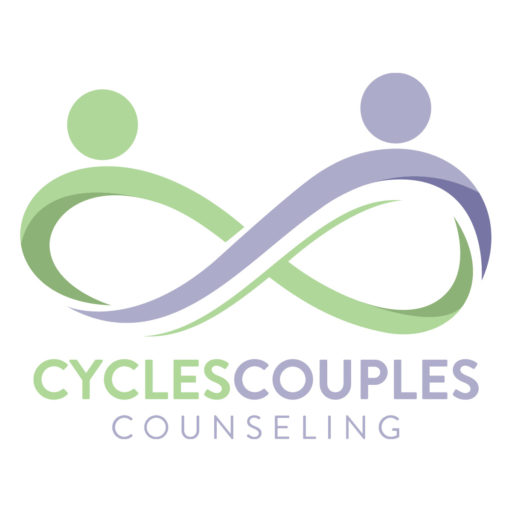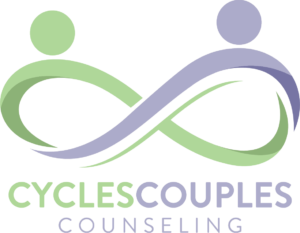Congratulations! You made it past the biggest hurdle, you and your partner decided to finally try couples therapy. This is probably one of the bravest decisions you can make. Deciding to enter therapy and share emotions with a third party can be very vulnerable. Finding a couples therapist can feel overwhelming.
Okay, we’re down to go see a therapist, but how to we pick the right couples therapist?
For most, this involved a quick search on Google. There you will find a large variety of mental health professionals. Before you pick someone based off a cool website or their profile picture, there are a few things to consider to before finding the right couples therapist.
So, how do we know if they’re the right couples therapist for us?
The most important first step is finding someone who specializes in couples and relational work. Your relationship is so precious to you it would be foolish to put it in the hands of someone who isn’t versed in dyad dynamics.
Just like you wouldn’t go to a dermatologist for a broken arm, you don’t want to go to an individual therapist for couples work. Finding the right therapist must involve a professional who is experienced with dealing with more than one person in the room.
Surprisingly, there is no regulation of the term “couples therapist.”
This means right out of school, anyone with a counseling degree is legally free to present as a couples therapist and begin seeing couples. Consequently, it is extremely important to do your research when finding a couples therapist.
Working with couples requires specialized training. Many graduate programs have specific tracks for working with different populations. A couples and family therapy track prepares students to navigate the intensity of the passionate emotions of two people in a room simultaneously.
What works for individual counseling does not necessarily transfer to the reactivity present in most couples sessions. Couples therapists must learn how to empathize with one, without invalidating the other, easier said than done. For this reason there is extensive coursework, trainings, and certifications available to help teach clinicians how to manage all these variables.
Think of it like an orchestra director and an individual who gives individual music lessons. They may both have extensive training in musicality; however, one is trained for one on one specialized attention, while the other works on a more macro level attending to multiple musicians at once. Same knowledge, different application.
The Biggest Factor Tied To Successful Counseling Outcomes
Research states that the biggest predictor of success in all different modalities and counseling approaches is one simple thing—Do you like your therapist? Finding a couples therapist you vibe with is important.
Having a good rapport with your therapist is crucial for successful outcomes.
Do you feel comfortable or judged?
Does their office seem like a safe space to you?
Can they make you laugh?
Do you feel welcomed?
A therapist’s approach and personality can have a large impact on how much you share about yourself and your relationship.
What is their approach to couples therapy?
There are many different theories about working with couples. It’s crucial as you are finding a couples therapist that you do some research on their background.
How much training do they have specifically in couples work?
How frequently do they work with couples?
What’s the roadmap for therapy? What will we follow for this process?
Does this approach have any evidence base or research to back up positive outcomes?
At Cycles Couples Counseling our passion is couples therapy. We use strictly the most effective evidenced base model of couples therapy and attachment research, Emotionally Focused Couples Therapy. Our therapists are certified in this approach by an international board and continue to receive ongoing training and supervision in the field.
As a result, couples at Cycles Couples Counseling enter therapy with a roadmap to connect and the focus and passion from their therapist to restore their connection.
Couples Therapist Years of Experience
This is a tricky area which requires specificity. Just because a therapist has spent 25 years in practice, does not mean they have spent that whole time working as a couples therapist. You want to find a couples therapist that has many years of experience working with couples specifically.
Another factor at play is supervision. Supervision is not mandatory, only advised after licensure. This means that the 25 years in practice could have potentially be spent using an approach that is not evidence based or that their skills were not up to par.
It’s helpful to know if your clinician is receiving ongoing supervision or continuing education to find the right couples therapist.
What do the letters listed after their name mean?
These letters are called credentials. They are abbreviations for certification, education or training a clinician has completed. When you try to find a couples therapist, it’s helpful to match your relationship needs with a therapist’s credentials. This will ensure you find the right couples therapist for you.
Education
BA/BS: Bachelors of Arts or Bachelors of Science. This is simply an undergraduate degree and does not necessarily imply this person is qualified to practice clinical therapy.
M.Ed/MS: Masters of Education or Masters of Science. This graduate level degree in a mental health field is necessary to qualify for licensure.
PhD/PsyD: Doctorate of Philosophy or Doctorate of Psychology. In general counseling is a masters level position, a Doctorate is the highest obtainable degree. This is usually only necessary for teaching or research.
**It’s crucial to see what fields these degrees are from. They should be from an accredited university in a mental health field of study. There are even some degrees like DCH (Doctorate of Clinical Hypnotherapy), which are not accredited in the United States or the American Psychological Association. Look carefully!
Licensure
LPCC/LPC: Licensed Professional Counselor Candidate or Licensed Professional Counselor Think of a candidate like a residency for a doctor, they have completed all the educational requirements and are now logging hours of experience. This licensure is broadly trained to work with individuals, couples and families. This requires a masters degree. In the state of California an LPC must obtain permission to work with couples as designated by their educational background.
LSW: Licensed Social Worker. These clinicians know a lot about connecting others to community resources and some basic counseling skills. This only requires a bachelor’s degree.
LCSW: Licensed Clinical Social Worker. This is most advanced social work licensure. It requires at least a Masters degree and far more clinical hours.
LMFT: Licensed Marriage Family Therapist. These clinicians have extensive training using a systemic approach to work specifically with couples and families. This requires the bulk of their experience hours to be with at least 2 clients at a time.
PhD/PsyD: These degrees are eligible to become Licensed Psychologists. PhD’s tend to work on more formal health assessments, while PsyD’s focus on more clinical work with clients.
**ALL of these licensees are trained in basic counseling and helping skills and could be qualified to work with couples. It’s important to look at the field their educational degrees are in and what their certifications are.
Certification
NCC: National Certified Counselor. These clinicians have maintained continuing education hours and met the high national standards set by the board.
LAC: Licensed Addictions Counselor.
CSAT: Certified Sex Addiction Therapist
AASECT Certified Sex Therapist: American Association of Sexuality Educators, Counselors and Therapists. These clinicians complete extensive training and education programs to work with clients who have sexual concerns.
Certified EFT: Emotionally Focused Couples Therapist. These clinicians complete rigorous training programs to learn to use an attachment style approach to strengthen and maintain secure bonds between partners. This has the most positive outcome studies of any couples therapy approach.
Gottman Trained: This certification is also for those clinicians practicing couples work. It requires much training and supervision to hold this title. Various levels of this training can be achieved and notated.
A therapist’s credentials come from experience and education. It’s best to look at the whole picture when trying to find a couples therapist. Look at all the acronyms rather than focusing your attention on one.
We’re ready to do something different!
If you two are ready to strengthen your bond or heal old attachment wounds, schedule a session with Cycles Couples Counseling and let a specialized and experienced couples therapist help you!
Learn more about Couples Therapy in California.

